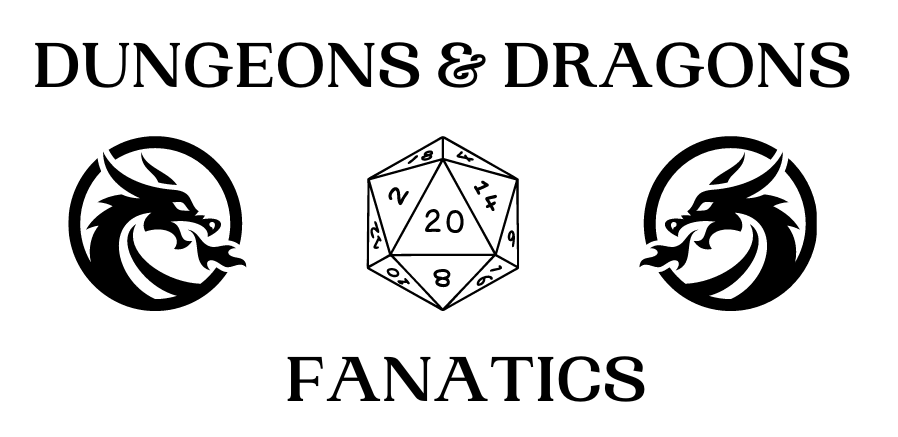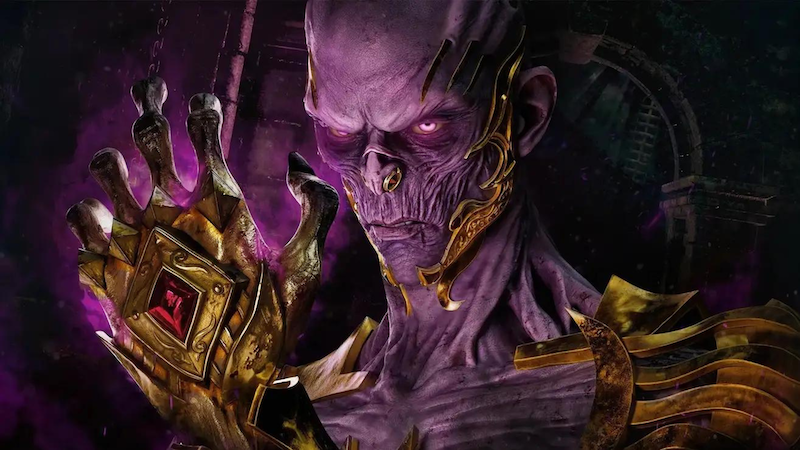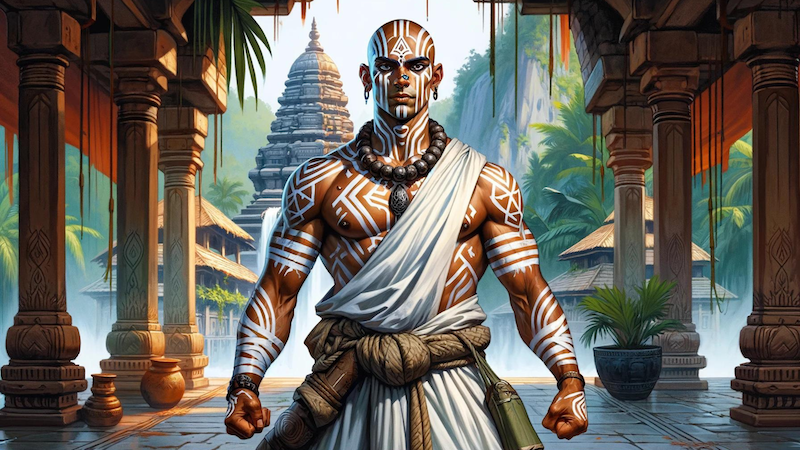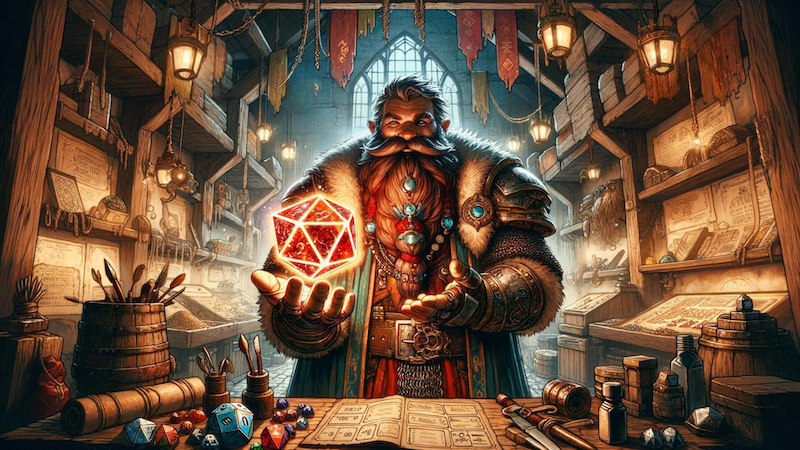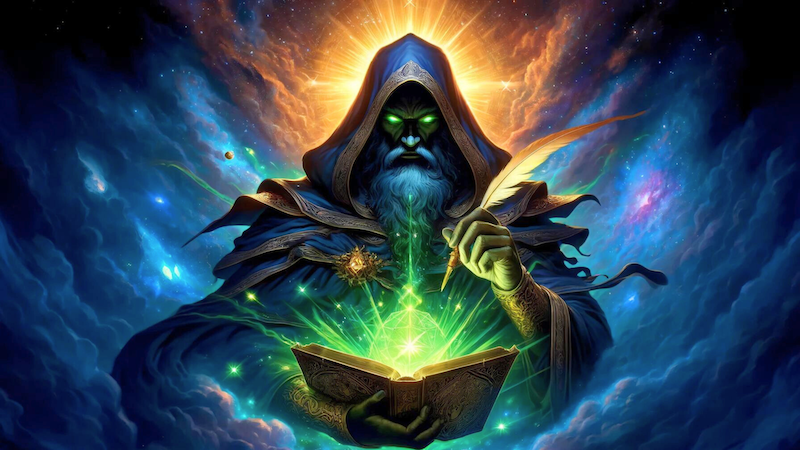

Wizards of the Coast Unveils New D&D OGL 1.2 and Solicits Feedback
Dungeons & Dragons reveals latest Open Game License and begins “playtest” for fans and publishers
In a recent post on the D&D Beyond platform, Dungeons & Dragons Executive Producer Kyle Brink officially introduced the OGL 1.2; the latest version of the Dungeons and Dragons Open Game License which governs which rules and content can (and can’t) be used by third-party publishers.
In the post, Brink also indicated that players and publishers will have the opportunity to provide feedback via an online survey that will remain open for several weeks and is similar to the surveys provided as part of Wizards of the Coast’s ongoing One D&D playtest.
The move comes after a significant amount of controversy and fan outrage following a leaked version of OGL 1.1 which required publishers to provide royalty payments, declare earnings and essentially sign over ownership of their content to Wizards of the Coast. That fan backlash lead to a slew of cancelations of D&D Beyond subscriptions and negative attention from mainstream media, leading a public apology from Wizards of the Coast and a promise to walk back most (if not all) of the offending additions to the license.


What’s in the New OGL 1.2 Document?
In the post on D&D Beyond, Brink indicated that this newest version of the Open Game License will no longer contains any of the ownership, royalties, and revenue reporting requirements found in the more restrictive OGL 1.1. The key updates to the OGL 1.2 document are as follows.
- Cracks down on hateful content: The OGL 1.2 offers new legal language that allows Wizards of the Coast to immediately revoke the license for any publisher it feels is producing discriminatory, offensive or hateful content (although the specific details on what legally meets this criteria is somewhat ambigious).
- Applies only to TTRPGs: The updated OGL 1.2 will only apply to tabletop roleplaying games (TTRPG) content. This includes print and electronic materials as well as content on virtual tabletops (VTTs) such as Roll20 and Fantasy Grounds.
- Original OGL will be deauthorized: The original Open Game License (also known as OGL 1.0a) will be deauthorized (meaning it will no longer be valid for any new content). In his post, Brink claims that this is to allow Wizards of the Coast to take action in cracking down on hateful content. Brink, however, reiterates that any content already published under OGL 1.0a will not be impacted by the new license.
- Limited license changes. Two new sections in the OGL 1.2 will allow for license changes. The first potential change allowed under the new license is how publishers cite Wizards of the Coast in their work (this could for example, be put into effect if Wizards of the Coast sells Dungeons & Dragons to another publisher). The second change is how Wizards of the Coast and third-party publishers can contact each other (again, this might be due to the fact of D&D changing ownership). Brink indicates in the post that Wizards of the Coast is doing this as a kind of future proofing for unforeseen scenarios.
- New Virtual Tabletop Policy. According to Brink, the OGL 1.2 will continue to support VTT usage for both creators and operators, with the document containing a new policy section. Notably, Wizards of the Coast is working on their own VTT as part of the upcoming One D&D system, so this policy may have far reaching implications.
- Publishers retain ownership of content. One of the biggest complaints with the OGL 1.1 draft was that it allowed Wizards of the Coast to retain ownership and use of any material created under the license. Brink indicates in the post that this is no longer the case and that OGL 1.2 signatories can sue Wizards of the Coast if they feel there has been a breach of this agreement and content is being used without legal permission.
- Optional Creator Product Badge. Under the OGL 1.2, third-party publishers will now have the option to include an official OGL badge design (notably in the leaked OGL 1.1 this badge was listed as a requirement).


Wizards of the Coast Also Opens Up Creative Commons License
In the D&D Beyond post, Brink also revealed that the core game mechanics for D&D will now be placed under a Creative Commons license. This means that anyone can use the basic rules of the game in any way, shape or form (although this is a bit of a legal grey area since it’s unclear whether or not game rules actually can be copyrighted).
“We’re giving the core D&D mechanics to the community through a Creative Commons license, which means that they are fully in your hands,” said Brink. “If you want to use quintessentially D&D content from the SRD such as owlbears and magic missile, OGL 1.2 will provide you a perpetual, irrevocable license to do so.”
Regardless of the legality of the move, it is an extended olive branch that may help alleviate some of the anger that fans and publishers are feeling in the wake of the OGL 1.1 controversy.
What’s Next for the Open Game License 1.2?
Brink notes that his D&D beyond post will be updated shortly to include with a link where fans and players can submit feedback on the OGL 1.2 draft. The feedback survey will remain open until February 3rd and Wizards of the Coast will address this feedback by February 17th.
We’ll be keeping a close eye on this story as it develops.
More D&D News Coverage
For more from the world of Wizards of the Coast, visit our D&D News page.


